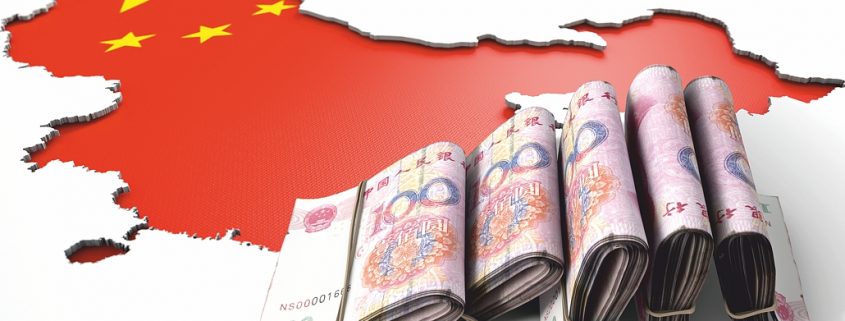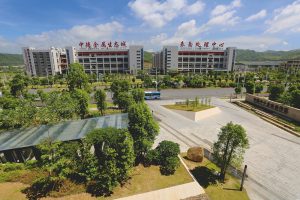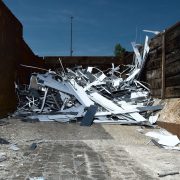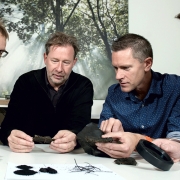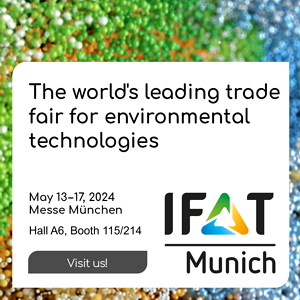China: Ready for Foreign Investors?
Chen Guangbiao is the founder of Chinese Jiangsu Huangpu Recycling Resources Co., Ltd. The company procured him an asset of estimated 600 million Euro. In the Western World Chen Guangbiao became known announcing in December 2013 to buy the New York Times – alternatively CNN, Washington Post oder Wall Street Journal. News agency Reuters cited him with the remark: “There‘s nothing that can‘t be bought for the right price.“
It seems that other Chinese entrepreneurs or manager followed the motto as well in case of investments or acquisitions of recycling companies all around Europe. Some examples may confirm that.
The Netherlands: In August 2013, Power Assets, Cheung Kong Infrastructure Holdings Ltd. and Li Ka Shing Foundation Ltd. acquired Dutch Enviro Energy paying 9.7 billion HK-Dollar. Dutch Enviro Energy operates 5 waste treatment plants and owns AVR, the largest EfW company in the Netherlands.
Portugal: In November 2013, Chinese group Beijing Enterprises Water was said to study the privatization of Portuguese company Empresa Geral de Fomento (EGF), a subsidiary of water group Águas de Portugal for the solid urban waste sector.
A new record for Merger & Acquisition
Germany: In February 2015, after rounds of fierce competitions, Beijing Enterprises Holdings successfully acquired 100 percent equity interest in Energy from Waste (EEW) at a consideration of 1.438 billion Euro. EEW operated 18 energy-from-waste plants and held a leading position in the energy-from-waste sector in Germany with approximately 18 percent market share.
Italy: In December 2015, the Chinese construction machinery giant Zoomlion invested 67 million Euro for a share of 57 percent of Italy‘s waste-disposal company Ladurner in Bolzano. Ladurner manages 30 plant projects in Europe for the treatment of solid waste and the production of renewable energy from biomass.
Sweden: In January 2016, waste water treatment company Purac was sold to SDIC & Beijing Drainage Investment Fund, a fund majority-owned by the Beijing Drainage Group. Purac had developed into a leading contractor within water and wastewater treatment and biogas production in Scandinavia and China.
For more than one billion Euro
Poland: In June 2016, state owned China Everbright International expanded into Europe with the 123 million Euro acquisition of a major Polish waste management firm Novago. Novago is said to be the largest independent waste treatment company in Poland, including six technologically advanced production sites and a RDF production to supply alternative fuels to cement plants across Poland.
Spain: In September 2016, Spanish group ACS sold waste treatment firm Urbaser for more than 1 billion Euro to Firion Investments, a firm controlled by the Chinese Group China Tianying. Urbaser‘s activities range from waste collection to waste treatment plants in Spain, Portugal, France, Italy, the UK, Morocco, the United Arab Emirates, Mexico and other South American countries.
The Netherlands: In November 2016, three Chinese investors showed interest in the acquisition of Dutch waste management group Attero. Attero – processing 40 percent of Dutch household waste and describing itself as a leading player in creating energy from waste – finally forgot about the planned sale.
To obtain control over most profitable segments
Germany: In December 2016, Chiho-Tiande Investments Limited had taken over the capital stock of German Scholz Holding GmbH at a price of 1 Euro. The new subsidiary was at that time a leading European scrap recycler present in several Middle and Eastern European states, USA and Mexico and ranked among the biggest global recycling companies for ferrous and non-ferrous metals. And regarding Eastern Europe, “for China, the region represents a gateway to larger European markets,” the Financial Times cited Cui Hongjian, director of European studies at the China Institute of International Studies.
A study on “Made in China” by the Mercator Institute for China Studies in late 2016 pronounced that Chinese high-tech investments in Europe need to be interpreted “as building blocks of an overarching political program. It aims to systematically acquire cutting-edge technology and generate large-scale technology transfer. In the long term, China wants to obtain control over the most profitable segments of global supply chains and production networks.”
Open space in China’s market
Of course, China offers opportunities to invest foreign capital as well, as the countries` need of municipal waste management has become paramount and especially the demand for relevant waste-to-energy equipment following the 13th Five-Year Plan is increasing: The worldwide contract volume of incineration-capacity in 2014-2016 comprised of 83 percent by China and comparatively little 8 percent by Europe, according to management consults A. Vaccanti & Partner. As experts formulated, the development status especially of China’s domestic e-recycling industry opens “space in the market that foreign involvement is well placed to fill”. However, foreign investors servicing firm Dezan Shira & Associates warned in their “China Briefing” that clients “looking to capitalize on China’s environmental leadership must have a thorough understanding of where opportunities exist, and how to make secure investments”.
According to the current online industry marketplace environmental-expert.com, there are 200 foreign companies providing solid waste management, service, supply or monitoring that are based here, represented by own office or acting as a distributor in China. And more than 1,900 companies in the same branch are serving China from abroad. Presumably the figures are much higher. However, a reliable overview is not possible even because of the different and various operational types.
Not a market for beginners
Foreign direct investment is possible if a company from abroad is allowed to act as a wholly-foreign owned enterprise (WFOEs). The registration process is determined by several obstacles and hurdles and contains risks, for example in finding a reliable Chinese consulting firm for the WFOE registration process. China law blog Harris | Bricken has some experience in the field and advises: “There are some excellent China company formation companies and there are some where you are all but guaranteed to waste your money.” And Hans Sanzenbacher, Managing Director of Polytechnik Deutschland GmbH, underlined: “China is not a market for beginners … One needs strong human and financial resources to tap into the market. And the coordination process is also much longer.” In the case that the know-how of a certain branch is wanted, for example used electronic manufacturers or recyclers – if approved by the Ministry of Science and Technology, the Ministry of Commerce and the State Administration of Taxation and under several other conditions – can enjoy several tax benefits and get the opportunity to make money in e-waste recycling. The same applies for foreign investors into China’s waste water treatment technology as it this desperately needed.
The competitive struggle from Chinese businesses even now must not be underestimated. As waste-to-energy companies are sought-for, foreign firms like Babcock & Wilcox, MVVEnergy, Suez Environnement, Veolia, Viridor and Wheelabrator ranked amongst the 25 leading w-t-e companies in China in 2015. On the other hand, the Chinese solid waste management in 2011 was mainly controlled by domestic companies. Even the two “foreign” enterprises among the biggest nine were the Dalian Dongtai Industrial Waste Treatment Co., Ltd., a 90 percent-owned subsidiary of China Industrial Waste Management Inc, and the USA-based Covanta Holding Corporation that held minority interests in two waste-to-energy facilities of China‘s Chongqing Sanfeng Environmental Industry Co., a subsidiary of the Chongqing Iron & Steel Group Ltd.
Entering into strategic engineering agreement
Indirect investing is possible as well by licensing or franchising the technology to the Chinese waste market. Hence, U.K.-based electronics waste management firm E-Waste Systems Inc. did so by entering into a strategic engineering agreement with one of the largest electronics recyclers and technology firms in China: Loyalty Equipment Making. According to PR Newswire, a distributor of press releases, the initial value of the deal in 2013 was worth 800,000 US-Dollar, plus royalties and a minimum 5,000,000 US-Dollar sales commitment. In addition to the license agreement, the deal included an investment of 650,000 US-Dollar in E-Waste Systems, bringing technology, regulatory knowledge, industry experience and market knowledge to the deal. E-Waste Systems-CEO Martin Nielson is cited with the words: “The transactions includes access to all of Loyalty’s technologies and agreements for joint branding initiatives nationally and internationally, raising our standing in the industry and establishing EWSI as the industry‘s largest globally integrated e-waste recycling brand.” And he was thrilled to enter the market in China and further with this deal: “This master license advances our global footprint as the leading eWaste pure play public company and is extremely important to secure our eWaste brand globally.”
Joint ventures and special arrangements
The deal of Berlin based disposal group Alba with a Chinese investment fund under the lead of the entrepreneurial family Deng was called a joint venture. The signed participation agreement in October 2016 includes Deng – owner of Chengdu Techcent Environment – participating by 60 percent in the China business and the service division of Alba. The German group received an investment sum estimated at more than 300 million Euro. Alba CEO Axel Schweitzer denied that the transaction could be interpreted as destruction of his concern. The Manager Magazine was told: “It is our target to combine the strength of both partners: Techcent’s strength on the Chinese domestic market with our cutting-edge sorting technology. Or our leading role in recycling services with the expansion force of Techcent.” Such arrangements with a Chinese investor Yi Sun, director of Ernest & Young‘s China Business Services, refer to as strokes of luck for European firms: They offer “partly high financial resources, a better access to the Chinese market and future perspectives.”
A special arrangement for German medium enterprises has been created by the ZhongDe Metal Group GmbH. The Metal Eco City (MEC) is designed and founded as Sino-German interface to deliver a start-up support to foreign businesses and to open access to the German market for Chinese undertaker. The MEC offers a showroom for a year for free to the business to investigate the economic possibilities without time pressure and guarantees intellectual property rights. The MEC Management supports the initial, contract and operative establishing stages; legal professionals can be mediated. Until the 30th of July 2017, MEC‘s Business Inkubator delivered young German start-ups a special package including office and production space, internet and telephone for free as well as support for authority ways.
Improving influence
It can easily be summed up that China applies double standards in waste management investment in Europe and at home. In Europe, the Chinese strongly invest selectively in objects chosen by no means randomly. The acquisition of German EEW for example was the largest overseas acquisition related to waste treatment businesses by Chinese enterprises and created a new record for Merger & Acquisition in the history of Chinese enterprises in Germany. And the acquisition of Poland‘s Novago counted for the largest Chinese takeover of an environmental company in Central and Eastern Europe and was interpreted as “a solid foundation for future expansion” in that region, according to Everbright International CEO Chen Xiaoping. The more or less hidden aim: to get European know-how and improve the influence in the solid waste business sector. In contrast, foreign investment in China maybe encouraged, but is only wanted and admitted, if the branch possesses currently asked know-how and the investor fulfills several domestic conditions in absence of domestic competitors. If not, the foreign professional’s offer is dominated, blocked or hampered by domestic companies. Involving in such brunches may even lead to loss of proprietary technology and knowledge. A German Chamber of Commerce flash survey brought to light that two thirds of all responding German companies experienced obstacles in the legal or regulatory framework for their company in China in 2016 mainly caused by non-transparent regulatory processes and procedures, different interpretations of existing laws as well as insufficient prior information. And one in four companies indicated that they could not enforce intellectual property rights. Licensing issues and market access constraints were problematic for more than one in five companies.
“Europe is an ‘abundant buffet’ for Peking”, complained Jörg Wuttke, German director of the European Chamber of Commerce in China. “But for us, China only reserves some plates and a soup, and basta.” China‘s Foreign Minister Wang Yi knows, that the environment for investment should be improved. “However, China‘s doors will widen for foreign investors on and on.”
Photo: alswart / fotolia.com
GR 32017

